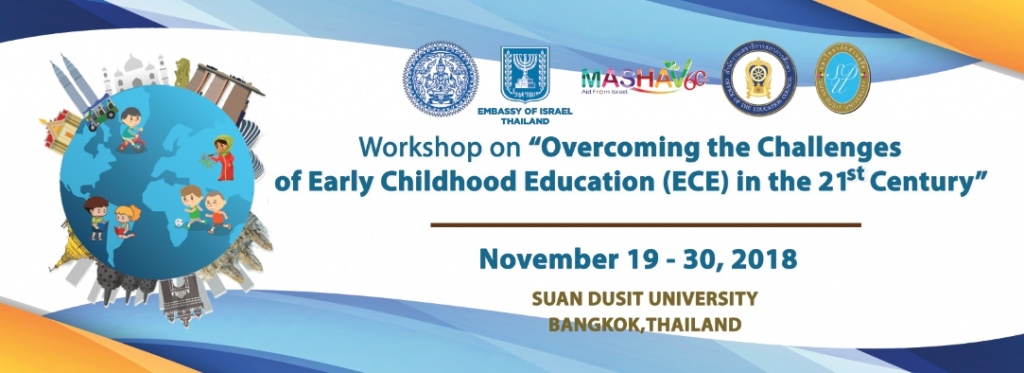The Office of the Education Council, Suan Dusit University and Thailand International Cooperation Agency (TICA), Ministry of Foreign Affairs of Thailand, in cooperation with Israel’s Agency for International Development Cooperation (MASHAV), Ministry of Foreign Affairs of Israel
Background and Rationale
Investment in child development, starting from early ages, yields the highest returns, particularly in the first 1,000 days from the child’s birth. It is the crucial stage for brain development and the accelerated learning phase. The key foundation in child development includes secured access to public services, like healthcare, education, and social securities. Educating their parents and caretakers also provides children with a better opportunity to develop to the fullest of their physical, emotional, intellectual, and social potentials.
Apart from the children’s parents and families, early childhood teachers and caretakers play the vitally important role in looking after and supporting early childhood development. Hence, early childhood teachers and caretakers’ capacity building for competency enhancement is an effective mechanism for improving early childhood education. As educational service providers, professional and competent early childhood teachers and caretakers must be equipped with knowledge, skills and positive attitudes towards children and learning arrangements. With sufficient knowledge and understanding of learning styles and differences of children in the individual-learning level, early childhood teachers and caretakers will be able to perform their tasks efficiently both inside and outside the classroom learning environment. In sum, the ultimate learning goal for ECE in the 21st century which focuses on positive child behavioral improvement requires total dedication and commitment of experienced and qualified teachers and caretakers in performing their tasks effectively in lessons planning, learning experiences and learning activities preparation, learning objective assessment, and learning outcome evaluation.
Objectives
This training aims to increase understanding, learning skill management, teaching management and abilities in arranging integrative learning activities and designing learning skills for early years learners effectively among early childhood teachers, so as for the children’s individual needs. This also includes building an ability to stimulate and support learning environment for children; and boosting up understanding in principles of innovative education in the classroom to support development accordingly to children in different ages.

